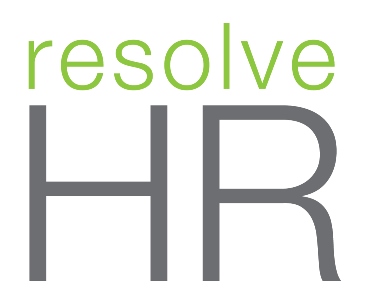
12 Sep How to manage millennials effectively and keep them engaged at work
Times have changed.
Workplaces are fast becoming (for some) a vehicle for earning more money to pay for a lifestyle of smashed avocado and green smoothies, investment properties whilst living at home with mum and dad, holidays to Bali and Byron and buying the latest sports car.
We are less settled and flexible around our willingness to work hard for a lower salary.
The workplace is now being led by ‘Millennials’ who do not have the same approach regarding work as Baby Boomers, Gen X and Y managers and rather than fight it we need to find a way to work with it to maximise productivity and retention.
Who are millennials?
Millennials are employees who are born between 1980 and 2000.
Millennials are considered as unique in their work practices and idiosyncrasies compared to their Gen X, Y and Baby Boomer colleagues.
Research suggests that millennials:
- can prefer working in teams as they want to make friends at work and socialise, and,
- have a reputation for being lazy and unwilling to work, with an expectation of immediate success.
However the reality is that many millennials have a can-do attitude and will want feedback about their work on a regular basis.
In my experience as an HR advisor having worked in a range of industries with a diverse client group, millennials need recognition and are confident they can climb the ladder, often more than is the norm in a workplace run by Baby boomers and Gen Xers.
I recently worked with a client in the health care industry filled with passionate and enthusiastic millennials. The main issue the Director of the business faced was how to retain and continue to engage his team which was experiencing high turnover. The advice I provided was to value a positive team culture, reward and incentivise loyalty, and communicate openly and frequently around performance.
The Director of this business has realised that the best way to communicate with the team is via social media (in this case via an app called Basecamp) and so emails are not used to update the team about client and internal announcements. Rather, there are discussions around the ‘campfire’ where various teams are grouped together and if you want to communicate directly with someone in the team you can ‘ping’ them. The use of social networking and social media seems to better engage this younger workforce.
Some interesting facts
According to Deep Patel at Entrepreneur magazine, (https://www.entrepreneur.com/amphtml/306860), three years ago, millennials overtook Gen Xers to become the largest generation in the workplace in the USA. In fact, millennials are now the largest generation in the country, and will remain so for the foreseeable future.
Another report by Tom McGillick reveals some alarming figures relating to the perceived attainability of the Australian dream. More than 25% of Millennials currently live ‘pay-cheque to pay-cheque’, with Millennials over 30 who have the least disposable income of all.
Of those millennials who do have some money to invest, less than 15% are currently putting that towards a deposit on a home and over 20% have already given up on the idea of home ownership. (http://www.bandt.com.au/marketing/australias-largest-survey-millennials-reveals-growing-elusiveness-australian-dream)
Research has found that, like Boomers, Millennials thrive on recognition and promotions and have a broader perspective about supervisor-subordinate relationships. Millennials, want to achieve close relationships and frequent feedback from their boss.
Their ideal boss – according to a 2013 Hays survey of 1000 Australians aged 18 to 30 – is mostly a mentor (50%), leader (40%), confidant (30%) and friend (23%). The four qualities they wanted in a boss were: support (43%), expertise (42%), motivation (39%) and fairness (38%).
My client I spoke about earlier discussed an issue of managing a Millennial employee who was raising issues regarding salary and overtime from an early stage in the relationship. There was a clause in the employment contract that indicated that there was a ‘’reasonable additional hours’’ requirement and that the salaries were paid well above the award to compensate for a buffer of these extra hours in order to perform the role. There was a level of resentment and frustration that this employee was asking too much too soon, because, from a Boomer and Gen X perspective it was inappropriate to raise such issues within the probation period as it was perceived to demonstrate disloyalty. I suggested that this millennial needed a positive reaction to clarifying the process of working additional hours, rather than reacting negatively and treating the employee as problematic. It could be an option to incentivise the employee to increase their opportunity, productivity and to gain a higher salary.
So what does this mean for the workplace, how they engage to bring out the best for business productivity?
It is important to acknowledge that each generation has unique features. Empirical studies support the stereotypes that Boomers are ambitious workaholics who may be critical of co-workers who do not work as hard. While Generation X are sceptics who like to work autonomously and dislike meetings. These were findings supported in an article published by Allianz (https://www.allianz.com.au/life-insurance/news/millennials-in-the-workforce) .
Millennials love fun and stimulating work. So in order to retain and attract millennials as longer term hires you need to look to provide them with interesting, innovative and non-laborious work to keep them engaged and entertained.
Millennials expect to become involved in important projects soon after they’ve joined the company including matters usually offered to more senior employees.
Giving Millennials more responsibility regarding broader company issues, so they feel involved, can avoid them becoming bored, which, according to popular literature, is the main reason for leaving.
So how can you best work with a Millennial?
In my humble opinion, keep communicating, innovating and give opportunity for progression.
If these issues are something you would like to discuss with an HR professional to plan your approach to this workplace change please reach out to ResolveHR.
Nick Hedges is the founder of Resolve HR, a Sydney-based HR consultancy specialising in providing workplace advice to managers and business owners.
Subscribe for the best of HR Management direct to your inbox:



No Comments